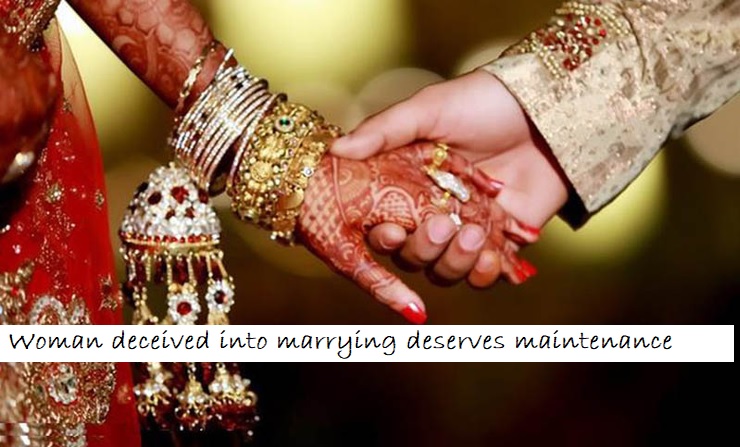


The recent decision by the Bombay High Court sheds light on a crucial legal matter involving Section 125 of the Code of Criminal Procedure (CrPC) and the entitlement to maintenance for a woman who was deceived into marriage. The judgment, delivered by Justice Rajesh Patil, holds that a woman who marries a man under the false representation that he is divorced is deemed his 'wife' under Section 125 CrPC and is entitled to maintenance.
Justice Patil's ruling emphasized the principle that the respondent, in this case, cannot be permitted to deny the maintenance claim by taking advantage of his own misleading actions. Citing the precedent set in the case of Dwarika Prasad Satpathy Vs. Bidyut Prava Dixit (1999), the judge expressed the opinion that, at least for the purposes of Section 125 of CrPC, the petitioner should be considered the 'wife' of the respondent.
The judgment delves into the intricacies of the case, highlighting the importance of establishing that the claimant woman and the respondent lived together as husband and wife. The court reasoned that, for the purposes of claiming maintenance, a more relaxed standard of proof applies compared to what would be required in trials under the Indian Penal Code (IPC). If the claimant can demonstrate cohabitation and present evidence of their relationship resembling that of legally married spouses, the court is inclined to presume a marital relationship.
The petitioner in this case asserted that she married the defendant in 1989 based on his assertion that he had divorced his first wife due to her non-cohabitation and inability to conceive a male child. Subsequently, in 1991, the petitioner gave birth to a male child. Complicating matters, the first wife, through mediators, proposed that they all live together. When they began residing together, both women conceived and delivered male babies. However, the petitioner claimed that she was later expelled from the house, and by 2010, the respondent stopped providing any financial support.
In 2012, the petitioner approached the court under Section 125 of the CrPC seeking maintenance. Initially, the court granted her application, awarding Rs. 2,500 per month. However, this decision was overturned by the Sessions court, prompting the woman to appeal to the Bombay High Court against the Sessions Court's order.
The respondent, the alleged husband, countered by asserting that he had never married the petitioner and maintained that he was only married to his first wife. He distanced himself from the petitioner's children, claiming no residence or involvement with them.
During the legal proceedings, the petitioner and the respondent presented their cases before the magistrate. The petitioner and her witnesses, including her two sons and individuals involved in arranging her marriage, were examined. The respondent, on the other hand, presented himself, his first wife, and a relative as witnesses.
Advocate Priyanka Daga, representing the respondent, argued for the dismissal of the petition, citing the petitioner's changing stance during the trial. The court, however, stressed that the standard of proof for marriage in proceedings under Section 125 is not as stringent as in IPC trials for offenses such as bigamy (Section 494 IPC). Once the marriage procedure is admitted, further scrutiny into its completeness according to Hindu rites is deemed unnecessary in Section 125 proceedings.
Addressing the respondent's claim that the petitioner's son was born before the alleged marriage date, the court deemed it irrelevant as the maintenance claim was for the petitioner herself. Moreover, the petitioner expressed willingness for the children to undergo a DNA test to establish the respondent's paternity, further underlining her commitment to proving her case.
The court concluded by noting that despite the petitioner's assertion that the respondent's income ranged between Rs. 50,000 to Rs. 60,000, the granted maintenance was a modest Rs. 2,500 per month. Acknowledging this incongruity, the court allowed the petitioner's plea and granted permission to file a fresh petition seeking an enhancement of the maintenance amount.
Advocate Narayan Rokade, representing the petitioner, argued that his client falls within the definition of 'wife' under Section 125 of the CrPC. He emphasized that there is no impediment for the court to grant maintenance in summary proceedings and asserted the need for a just and adequate resolution for his client. The court's decision, recognizing the petitioner as a 'wife' eligible for support and allowing the pursuit of an increased maintenance claim, underscores the nuanced considerations involved in such legal matters.
TAGS: Bombay High Court Section 125 CrPC Maintenance entitlement Deceptive marriage Justice Rajesh Patil Legal ruling